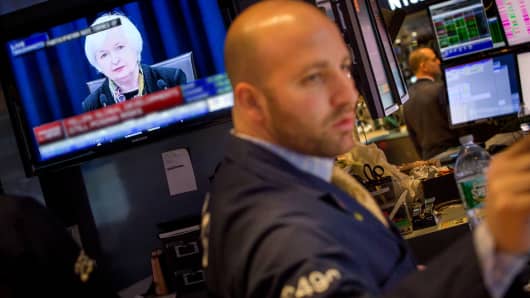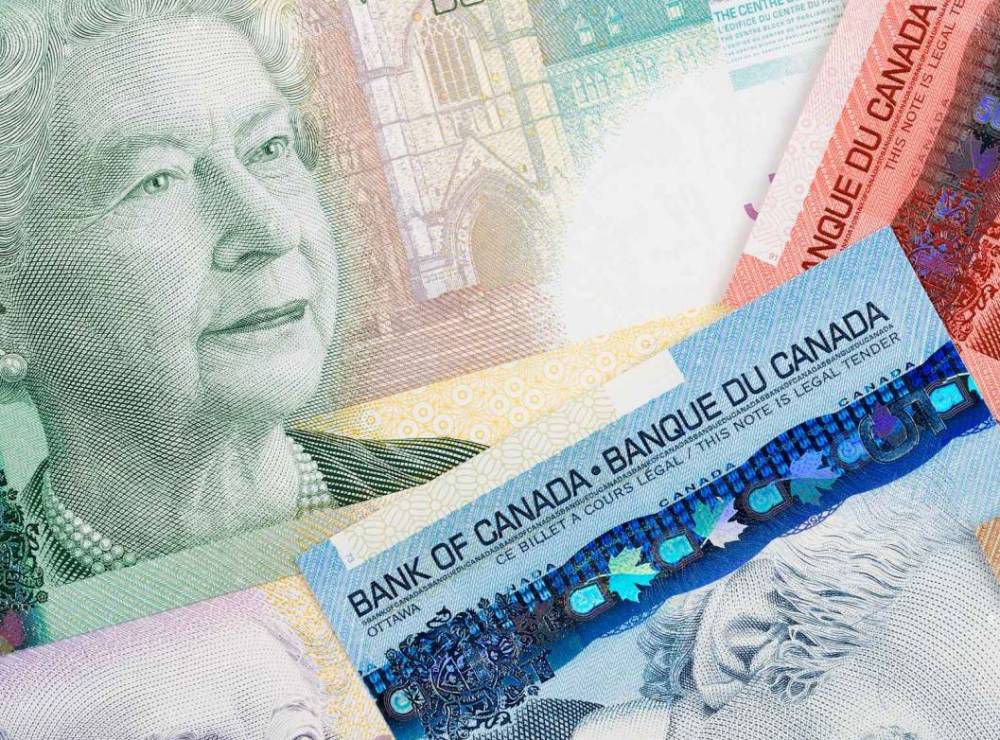Japan’s failure to stimulate much with its latest stimulus serves as a reminder of how few tools global policymakers have left to drive growth.
Fiscal and monetary authorities announced more plans over the past few days to spur inflation in hopes of driving broader economic hopes. The government on Tuesday announced fiscal stimulus amounting to $274 billion, while the Bank of Japan late last week said it would nearly double its exchanged-traded fund purchases to nearly $60 billion.
They were rewarded with a stronger currency, a sea of red in both global equity prices and bond yields, and a market that generally was disappointed that Japanese leaders were not willing to do more to jump-start the long-moribund economy.
Japan has tried this literally dozens of times over the past quarter century, most often with the same results — perhaps a momentary bounce in activity that ultimately leads back to the same dreary growth pace. Despite all the stimulus, the economy has grown by barely 1 percent a year.
“In short, the dual monetary and fiscal stimulus plans out of Japan over the past few days have chalked up to a disappointment,” said Christopher Vecchio, currency analyst at DailyFX, a currency trading firm. “The fault lies with fiscal policymakers, not with the BOJ, though. Whatever the BOJ did/does will have little impact unless the measures are amplified by a concurrent fiscal policy response; we now know the hefty fiscal policy response isn’t coming.”
Yet even the largest of bazookas seems to do little.
In the U.S., a variety of stimulus packages over the years also have failed to achieve exceptional results. The 2009 spending package of $830 billion, seven years of near-zero interest rates and about $3.7 trillion in money-printing — called quantitative easing — resulted in an economy that has yet to register a calendar-year gain above 3 percent since the financial crisis.
The Fed now finds itself with a credibility problem in which investors not only doubt its ability to goose the economy; there are also questions about the veracity of policy statements and forecasting acumen, as well as doubts about whether the central bank will be able to act should an unexpected crisis hit.
“The Federal Reserve faces the same issue: years of fiscal policy stagnation means any new easing the Fed does will have little impact in the areas of the economy that have thus yet to recover” from the global financial crisis, Vecchio said. “Think of it this way, as if the economy were a car: fiscal policy is the engine; monetary policy is the oil that slicks the gears. If the engine is turned off, or isn’t set up to run properly, then it doesn’t matter how much lubricant you apply — the car won’t run.”
Still, monetary policymakers continue to reach for ways to rev up the engine.
Some $11.5 trillion in sovereign debt now carries negative interest rates. There are trillions more with yields barely in positive territory or running well below historical averages.
The situation with low-yielding debt has gotten so extreme that Fitch Ratings warned Tuesday that a simple normalization of yields to 2011 levels could cause investor losses of $3.8 trillion. The losses would come in the form of principal plunges, as prices fall when rates rise. The low-yielding debt is held almost exclusively by institutional investors, meaning it poses systemic risks.
In the U.S., a benchmark 10-year yield hovering around 1.5 percent has provided plenty of impetus for money to move into the risk of stocks, but has not generated the same level of economic risk-taking.
“After all the QEs, after bond rallies globally, nothing appears to be the antidote to lumbering, low growth both in the U.S. and other developed economies,” Marilyn Cohen, CEO of boutique money managers Envision Capital Management, told clients. “We are looking straight at the Japanification of the U.S.”
Cohen’s advice to clients is representative of a growing chorus that believes central bank maneuvers have run their course.
“Under no circumstances should you listen to the Fed. Cover your ears and maybe hold your nose — this Fed and their Fed speak is so out of touch, so out of tune, that we deem their words white noise,” she said. “In the past the saying, ‘don’t fight the Fed,’ were words to believe in. Not now.”
[“source -pcworld”]




